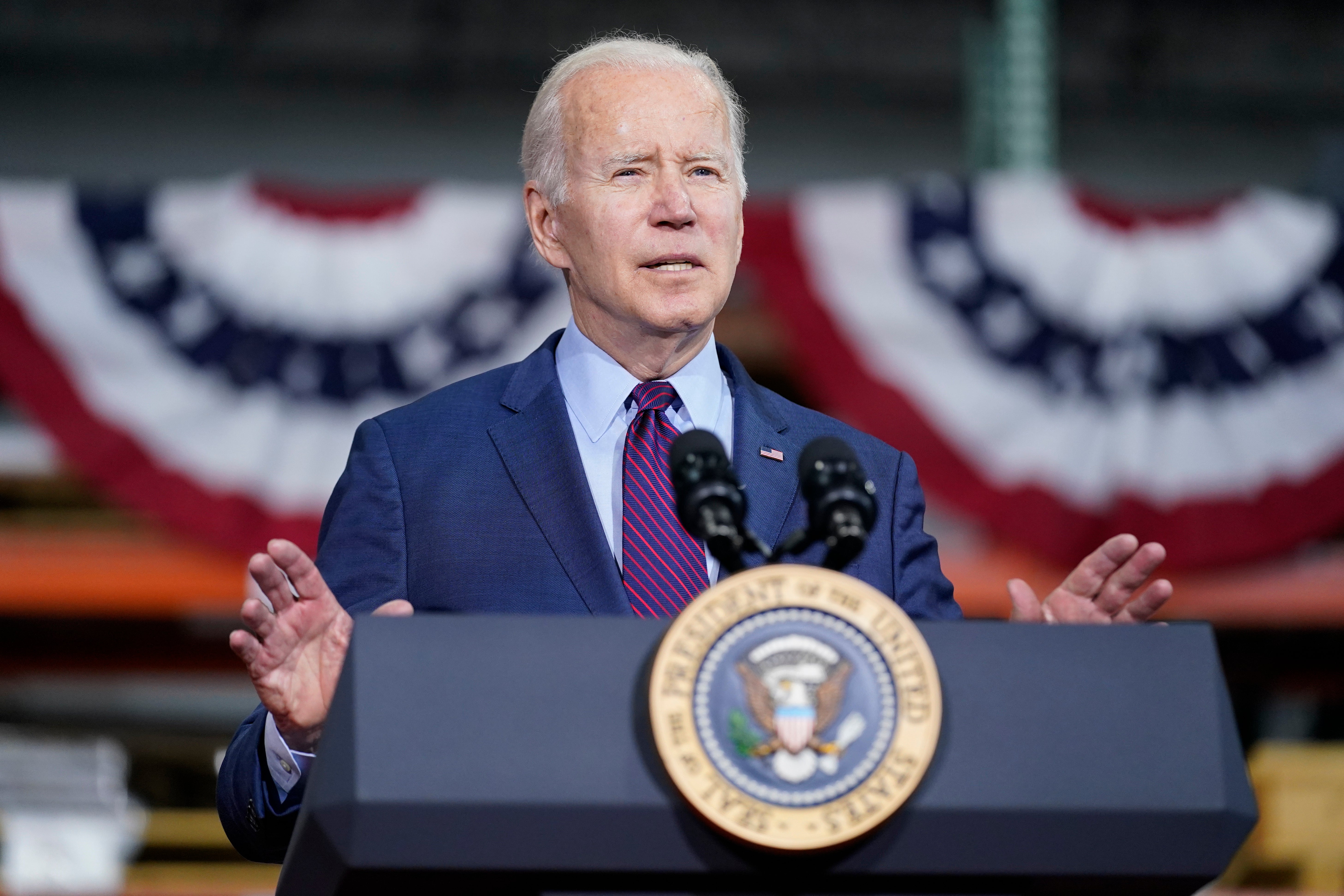White House says internet providers to discount fee for poor
The Biden administration says 20 internet companies have agreed to provide discounted service to low-income Americans

Your support helps us to tell the story
From reproductive rights to climate change to Big Tech, The Independent is on the ground when the story is developing. Whether it's investigating the financials of Elon Musk's pro-Trump PAC or producing our latest documentary, 'The A Word', which shines a light on the American women fighting for reproductive rights, we know how important it is to parse out the facts from the messaging.
At such a critical moment in US history, we need reporters on the ground. Your donation allows us to keep sending journalists to speak to both sides of the story.
The Independent is trusted by Americans across the entire political spectrum. And unlike many other quality news outlets, we choose not to lock Americans out of our reporting and analysis with paywalls. We believe quality journalism should be available to everyone, paid for by those who can afford it.
Your support makes all the difference.The Biden administration announced on Monday that 20 internet companies have agreed to provide discounted service to low-income Americans, a program that could effectively make tens of millions of households eligible for free service through an already existing federal subsidy.
The $1 trillion infrastructure package passed by Congress last year included $14.2 billion funding for the Affordable Connectivity Program, which provides $30 monthly subsidies ($75 in tribal areas) on internet service for millions of lower-income households.
With the new commitment from the internet providers, some 48 million households will be eligible for $30 monthly plans for 100 megabits per second, or higher speed, service — making internet service fully paid for with the government subsidy if they sign up with one of the providers participating in the program.
Biden, during his White House run and the push for the infrastructure bill, made expanding high-speed internet access in rural and low-income areas a priority. He has repeatedly spoken out about low-income families that struggled finding reliable wi-fi, so their children could take part in remote schooling and complete homework assignments early in the coronavirus pandemic.
“If we didn’t know it before, we know now: High-speed internet is essential,” the Democratic president said during a White House event last month honoring the National Teacher of the Year.
The 20 internet companies that have agreed to lower their rates for eligible consumers provide service in areas where 80% of the urban population and 50% of the rural population live, according to the White House. Participating companies that offer service on tribal lands are providing $75 rates in those areas, the equivalent of the federal government subsidy in those areas.
The providers are Allo Communications , AltaFiber (and Hawaiian Telecom), Altice USA (Optimum and Suddenlink), Astound, AT&T, Breezeline, Comcast, Comporium, Frontier, IdeaTek, Cox Communications, Jackson Energy Authority, MediaCom, MLGC, Spectrum (Charter Communications), Starry, Verizon (Fios only), Vermont Telephone Co., Vexus Fiber and Wow! Internet, Cable, and TV.
American households are eligible for subsidies through the Affordable Connectivity Program if their income is at or below 200% of the federal poverty level, or if a member of their family participates in one of several programs, including the Supplemental Nutrition Assistance Program (SNAP), Federal Public Housing Assistance (FPHA) and Veterans Pension and Survivors Benefit.